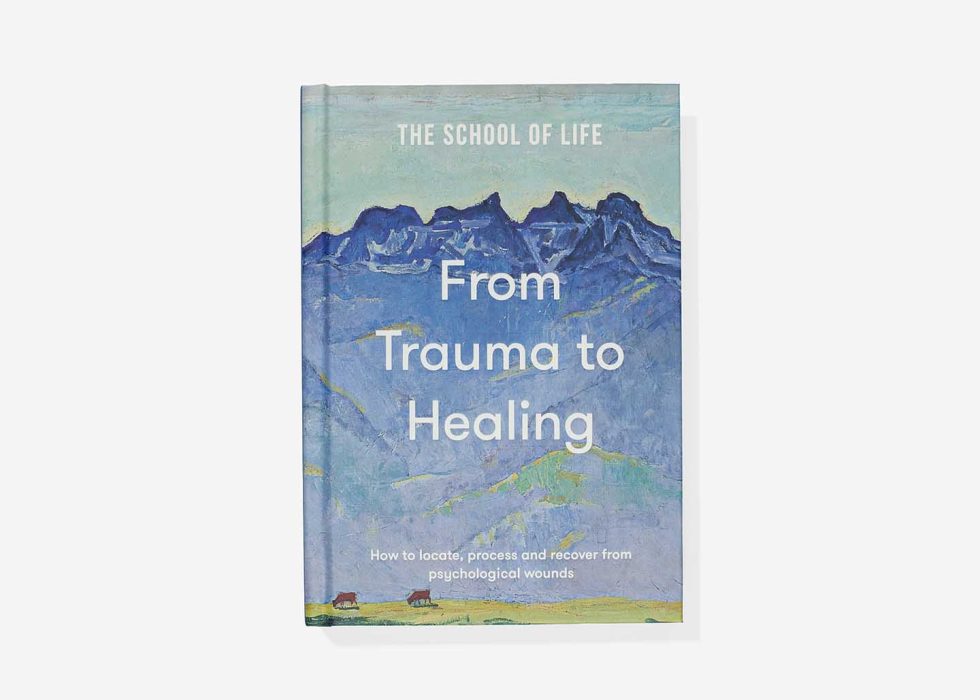Self-Knowledge • Mood
Mental Illness and ‘Reasons to Live’
When we are feeling well in our minds, we hardly notice that we might be harbouring in ourselves anything as formal or as dramatic-sounding as ‘reasons to live.’ We simply assume that we like life itself and that it must be natural and inevitable to do so. And yet a broad appetite for life is, on close inspection, never simply that; our apparently general buoyancy must covertly rest on a range of specific elements that, while we may not bother to itemise them, have their own and distinct identities nevertheless.

It’s only when a crisis hits and our mood starts to drop that we may for the first time start to feel, with acute sorrow, what these ‘reasons to live’ might have been all along; it’s as we lose our reasons that we understand them with uncommon clarity. We realise why we have for years bothered to rise out of bed with energy and relative good humour, put up with inconveniences, struggled to get ourselves across to others and looked forward to tomorrow – and wonder in dismay how we will from now on ever have the will and courage to continue.
Our engagement with life might have been bound up with, the enjoyment of work or of reputation, the companionship of a child or of a friend, the agility of our bodies or the creativity of our minds. Denied such advantages, we don’t merely miss out on an aspect of life, the whole of it loses its purpose. Secondary satisfactions – whether from a holiday or a book, a dinner with old acquaintances or a hobby – cannot compensate. The hedonic scaffolding of our lives disintegrates. We may not actively try to kill ourselves, but we can’t count as quite alive either. We are going through the motions; living corpses following a script drained of meaning.
When we say that someone has fallen mentally ill, what we are frequently pointing to is the loss of long-established reasons to remain alive. And so the task ahead is to make a series of interventions, as imaginative as they are kind, that could – somehow – return the unfortunate sufferer to a feeling of the value of their own survival.
This cannot, of course, ever simply be a matter of telling someone in pain what the answers are or of presenting them with a ready-made check list of options without any sincere or subtle connections with their own characters. It is at best cruel to tell an ailing person blithely to cheer up because the sun is shining and because they have enough money to feed themselves; it’s impossible to hector anyone back to health. If we are to recover a true taste for life, it can only be on the basis that others have been creative and accommodating enough to learn the particularities of our upsets and reversals and are armed with a sufficiently complicated grasp of how resistant our minds can be to the so-called obvious and convenient answers.
Awkwardly perhaps, we tend not to be able to heal on our own. In situations of true despair, our ability to think disintegrates (this is in large part what mental illness is) and so we need the minds of others to lend support to our native attempts to disentangle our confusion.
The process of dialogue, reflection and recuperation may be arduous but we can hang on to one essential and cheering thought: that no life, whatever the apparent obstacles, has to be extinguished. There are invariably ways for it to be rendered liveable again; there are always reasons to be found why a person, any person, might go on. What matters is the degree of perseverance, ingenuity and love we can bring to the task of reinvention and remodelling.
Most probably, the reasons why we might end up living will look very different after the crisis compared with what they were before. Like water that has been blocked, our ambitions and enthusiasms will need to seek alternative channels down which to flow. We might not be able to put our confidence in our old social circle or occupation, our partner or our way of thinking. We will have to create new stories about who we are and what counts. We may need to forgive ourselves for a fearsome degree of idiocy, give up on a need to feel exceptional, surrender worldly ambitions and cease once and for all to imagine that our minds could be as logical or as reliable as we had hoped. We may continue to live simply because every human deserves understanding – and because we are trying our best in the only way we know how.
If there is any advantage to going through a mental crisis of the worst kind, it is that – on the other side of it – we will have ended up choosing life rather than merely assuming it to be the unremarkable norm. We, the ones who have crawled back from the darkness, may be disadvantaged in a hundred ways, but at least we will have had to find, rather than assumed or inherited, some reasons why we are here. Every day we continue will be a day earned back from death and our satisfactions will be all the more more intense and our gratitude more profound for having been consciously arrived at.
The challenge from the present sickness can be mapped out in its essential form: one day to reach a small but robust and persuasive list of reasons to continue to be.



























